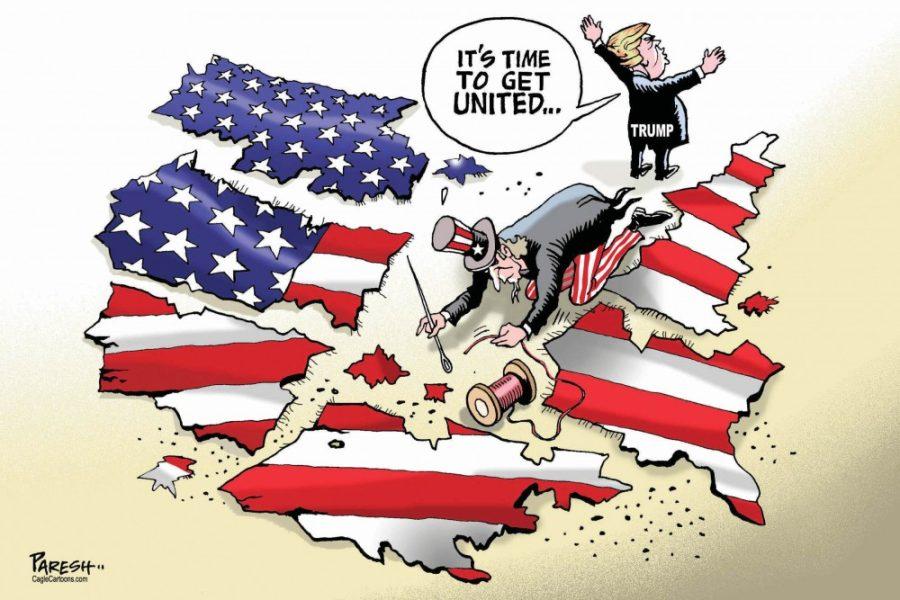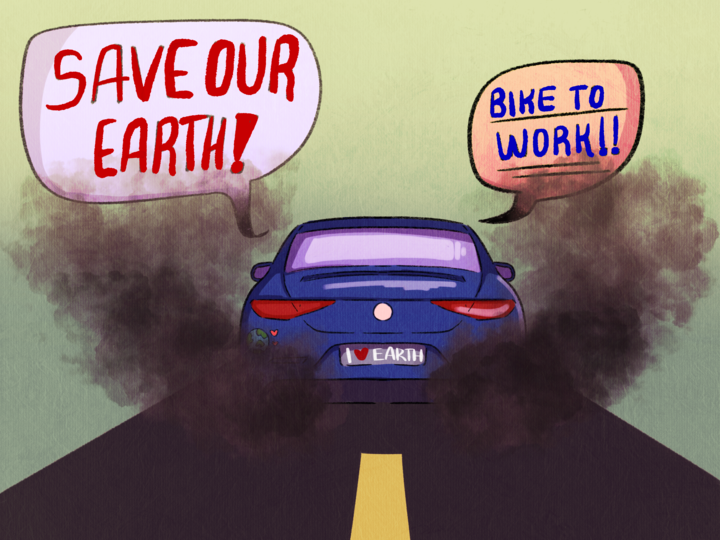Governor Doug Ducey has called for a convention of the states, but the issues our nation faces run much deeper than a consensus from a constitutional convention.
Last week, Gov. Ducey signed two bills from Arizona’s Congress calling for the first-ever convention of the states. Though many Arizona Representatives claim it is just to create a balanced budget, others, including the Ducey himself, see the potential for much more, such as federal term limits and judicial reform. This type of convention has the potential to turn into a full-fledged re-writing of the document.
After all, our constitution was only supposed to be a revision of the Articles of Confederation.
The U.S. has not seen a constitutional convention since 1787, despite Thomas Jefferson’s idea that a constitutional convention should be held every 19 years. The time to have one may finally be upon us.
Written into Article V of the U.S. Constitution is the ability to change it when necessary. It requires two-thirds of Congress or a convention called by two-thirds of the states to propose an amendment. The amendment then must be ratified by three-fourths of state legislatures or their conventions. I have always agreed with Jefferson’s idea to revise the constitution to keep it relevant. However, a constitutional convention may not work with the current division in our country.
Related: Senate Bill 1142 is out to get you
The major issues our nation cannot be solved with a convention. The convention may, in fact, perpetuate the problem to a point where the problems can no longer be fixed.
People have a greater awareness of the democracy that surrounds them; therefore, there are many institutions set in place by the constitution that seem undemocratic.
The Electoral College has served as a primary example of this idea, as it is a process that serves to facilitate indirect representation. While this is not the place to argue for or against the Electoral College, it is clear that it has caused a lot of division in the American people.
A constitutional convention will deepen this wound.
A convention of the states is even further separated from the people than the Electoral College. While the Electoral College attempts equal representation by dividing influence based on the number of representatives that each state has, a constitutional convention only requires a vote of state legislatures. Therefore, California’s legislature has as much pull as Wyoming’s. Three-quarters of the states hold less than half of the population, so a new national government can be passed without representing most of the country.
The conversation is polarized, with one half on the side of the constitution and states’ rights, and the other on the side of the people and equal representation.
As our nation has divided over the recent election; many do not view President Donald Trump as having been legitimately elected. If an even more state-centered process changed national law, the two sides would not be able to reconcile with each other. Those whose states disagree with the new national laws might not view a new constitution as legitimate either.
Related: Arizona Board of Regents on board with Ducey’s state budget proposal
Part of the issue the division in the country faces is the polarization of our political parties. Over the last few years, the Democratic and Republican parties have hardly been able to agree or compromise on issues.
This would also cause tension with a convention because the states who have recently called for a convention have done so primarily on Republican ideals, including the hope to return power to the states.
It would be unwise to call for an overhaul of national law if the two sides are unable to compromise. Thirty-two state legislatures are controlled by the Republican Party, three are split and 14 are Democrat. Thirty-eight state legislatures are needed in order to ratify a change, which means the Republicans can almost pull a ratification. If the two sides cannot compromise, a convention could result in a document that portrays Republican ideals.
Independent of political parties, it would do no good creating a new government that isolates an entire group of people based on their beliefs. If one side feels completely unrepresented by this new government, the supporters would have no motivation to stay bound to it.
In our time of intense partisanship and lack of compromise, a constitutional convention could make many of the problems we see in government worse, to the point where our government might not be able to stand at all.
Before moving forward with a constitutional convention, the people and politicians need to learn, to listen and to compromise with each other. Then, the government might be able to handle the renovation, which according to Jefferson, is long overdue.
Follow Toni Marcheva on Twitter









